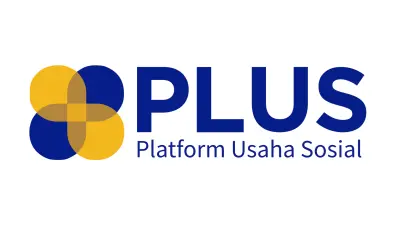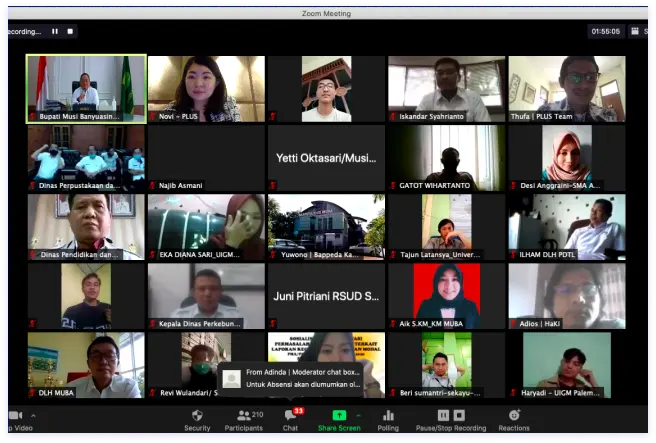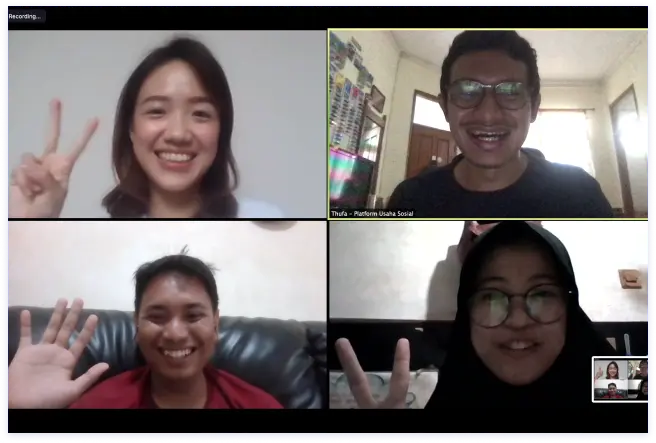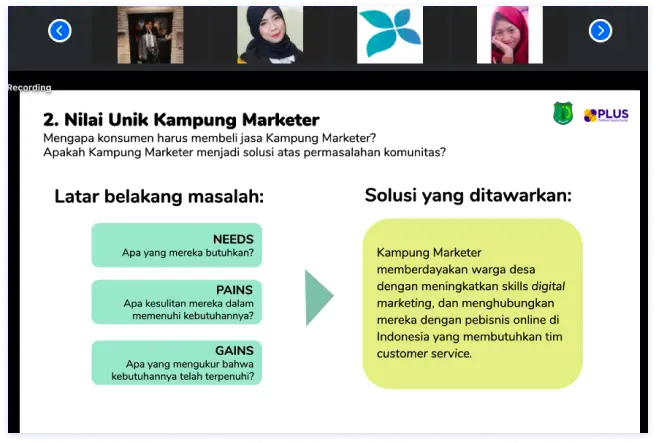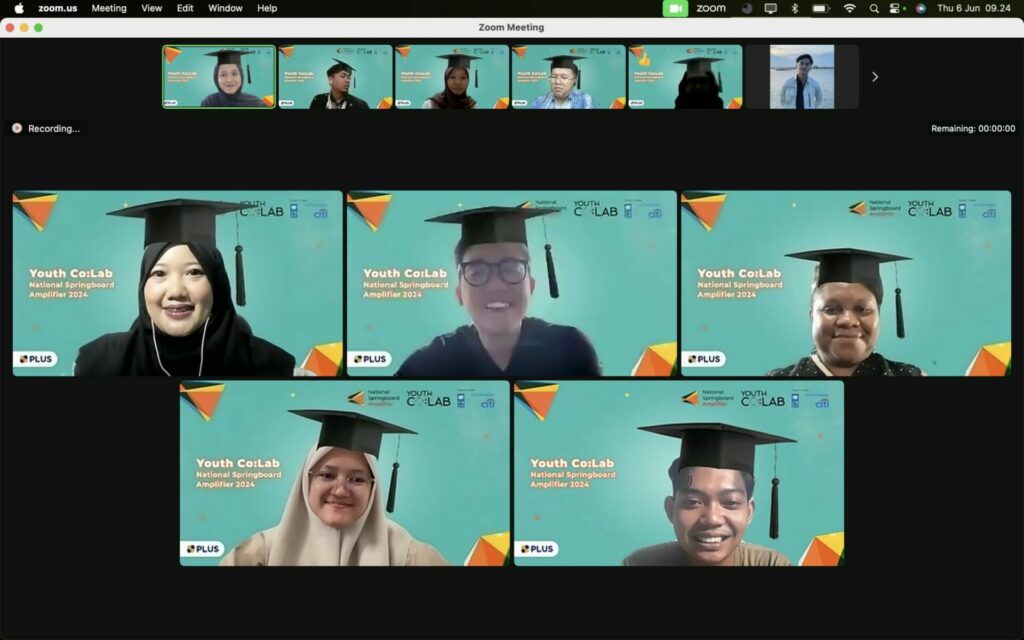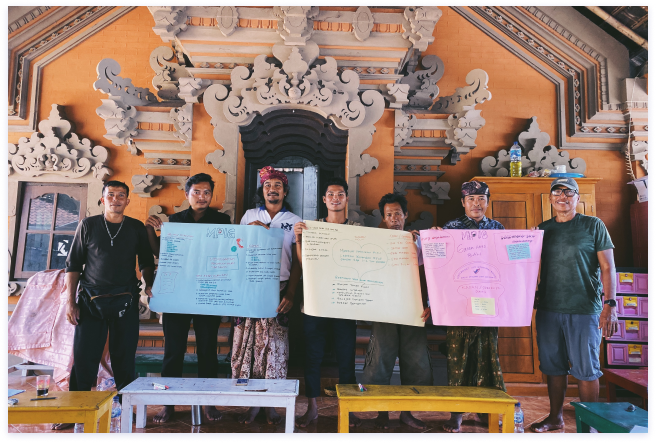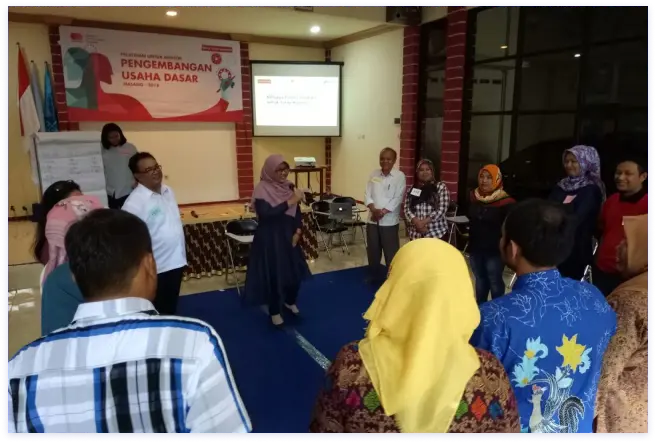The interest of young people in social entrepreneurship is high, regardless of their location. Even those who live outside big cities like Jakarta, and away from the island of Java, are keen to learn more about social entrepreneurship. In 2020, we were entrusted to hold a webinar on social enterprise, highlighting how regional commodities and resources could be managed to empower and prosper the region. We initially set a quota of 100 participants, with specific criteria for young people. However, to accommodate the high interest, we increased the participant quota. We received 279 registrants, and almost all of them met the criteria we had set. Due to various limitations, we had to select 200 participants who could participate in the webinar.
The webinar is an essential part of the selection process to choose the participants who are eligible to take part in the social entrepreneurship training series. The Musi Banyuasin Regency Government, along with Lingkar Temu Kabupaten Lestari (LTKL), initiated this training to establish the Center for Sustainable Commodity Excellence (PUKL) and hopes that young people will play a vital role in driving this institution. PLUS is responsible for implementing a series of workshops that include designing activity concepts, curricula, and assessment systems, and conducting workshops from July to August 2020. The ultimate goal of this training program is to identify young people who can participate in the operations of a central institution that promotes superior commodities in Musi Banyuasin district.
Project based training series
We carried out a series of curation processes to select 70 participants for a training series on social entrepreneurship. The training was designed as project-based, where participants were divided into groups to develop ideas for managing social enterprises based on local potential. The training materials covered basic social enterprise concepts, business models, data and information management, funding sources, and how to present social enterprise management ideas.
At the end of the training series, participants presented their ideas to the audience. It was fascinating to see the emergence of ideas for social enterprise management based on local potential, which had not been thought of before. For instance, one group presented its idea of managing the gambier crop commodity by empowering its farmers. Another idea was to collaborate with SMEs that produce superior commodities as potential partners of superior commodity central institutions.
Some participants had already started a social enterprise, such as those who presented how they collected coconut water waste to be processed into nata de coco. Overall, the training series helped participants develop their social enterprise management skills and enabled them to come up with innovative ideas.
During the training series, we conduct participant assessments to evaluate their progress. The presentation session carries the highest weightage as participants communicate their ideas to the audience. In addition to this, we also assess attendance, activity, and post-test assessments at each session. After a series of assessments, we selected the top 10 participants with the best scores who have the potential to be involved in the operations of leading commodity center institutions.
Apart from the participants’ ideas, which still need refinement and business feasibility studies, we learned valuable lessons from the training series. We observed how young people, when provided with the right opportunities and access to learning, can become agents of change and contribute positively to society. The crucial aspect is that they can identify and provide solutions to social problems in society.
